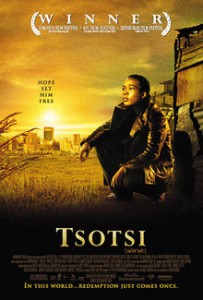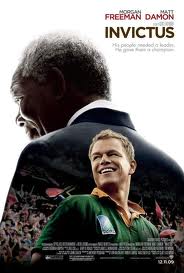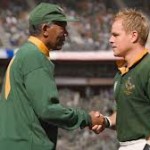 It seems that the original book this movie was based off of was set in South Africa in the 1960s, but this movie takes place after the apartheid was abolished. The poor black community and the black people of the wealthy middle class are contrasted, and there is a brief depiction of the AIDS problem and abnormally high crime rate; South Africa was Africa’s poster child after the apartheid, but this movie depicts a different side. For people who believe that South Africa transitioned smoothly into a fair community under the leadership of President Mandela, this movie may change their view of South Africa a little.
It seems that the original book this movie was based off of was set in South Africa in the 1960s, but this movie takes place after the apartheid was abolished. The poor black community and the black people of the wealthy middle class are contrasted, and there is a brief depiction of the AIDS problem and abnormally high crime rate; South Africa was Africa’s poster child after the apartheid, but this movie depicts a different side. For people who believe that South Africa transitioned smoothly into a fair community under the leadership of President Mandela, this movie may change their view of South Africa a little.
To say it briefly, this is the story of Tsotsi—an orphaned, juvenile delinquent who robs without thinking of the consequences—maturing into a kind human through his hard struggles in raising a baby he finds in a car he stole. From the moment a parent has a baby, their instinct is to want to protect that child. However, I wonder if this instinct to protect a baby would be triggered in Tsotsi, a young boy who never really had a parent’s love and repeatedly steals and robs. This may be a wonderful movie for a person who can believe this would happen, but for those viewers who have difficulty accepting this plot point, they may find the whole movie unbelievable.
Tsotsi, having a hard time caring for the baby, uses a gun to threaten a young woman in the neighborhood raising her own baby, asks her to breastfeed the baby, and becomes close with the woman. Her husband seems to have been attacked by someone on the way home from work at a factory and is missing. It is possible that Tsotsi or some scoundrel like him murdered the husband. However, this young woman doesn’t seem to be financially struggling, and the inside of her house is tidy. Whether or not you feel this movie to be realistic may make you think it is either a believable masterpiece or a fantasy depicting Africa. Either way, though, this is very sad movie.
This movie was made with three different endings. The official ending ends with Tsotsi getting arrested when he goes to return the baby to its parents. The second ending is that Tsotsi is shot in the shoulder by a police officer and barely escapes alive. The third ending is that Tsotsi dies from a shot in the chest by a police officer. I think the official ending is the best because it has some kind of hope. The second ending leaves the audience with the feeling, “What on earth is this movie trying to say?”while the third ending is too sad.


